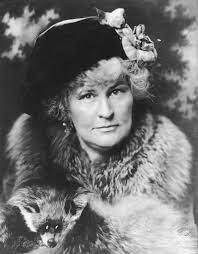By Chloe Brussard
Known as Winifred "Sweet Black" Bonfils and "Annie Laurie", Winifred Sweet is an American journalist who is a known cultural figure in the late 1800s and early 1900s.
She wrote stories about lepers in the Hawaiian Islands of Molokai, polygamy among Mormons in Utah, investigations into the juvenile court system in Chicago, and many more. She was also the first women to report on a prize fight and also the first women to report on the Galveston Hurricane in 1900.
She wrote mostly about stories in her vicinity but was known by people all over the country. Sweet worked at the "Examiner" all the way up until the last week of her life. She even had a piece published in the week before she died.
The death of Winifred Sweet was reported nationwide, which is uncommon for female reporters at the time.
Another thing she was known for was being a "sob sister". A "sob sister" is "a journalist who writes human-interest stories with sentimental pathos." Like mentioned before, she would do whatever she had to in order to get the story, and involving herself like that is why she was able to write with pathos in her work.
As Annie Laurie, she staged a public emergency test where she fainted in front of a carriage. Before being brought to the hospital, though, she was prodded by police. Once she reached the hospital, she noted that the people at the hospital were rude to the women, and this whole situation led to the discovery of a major scandal and found a problem with emergency services.



No comments:
Post a Comment